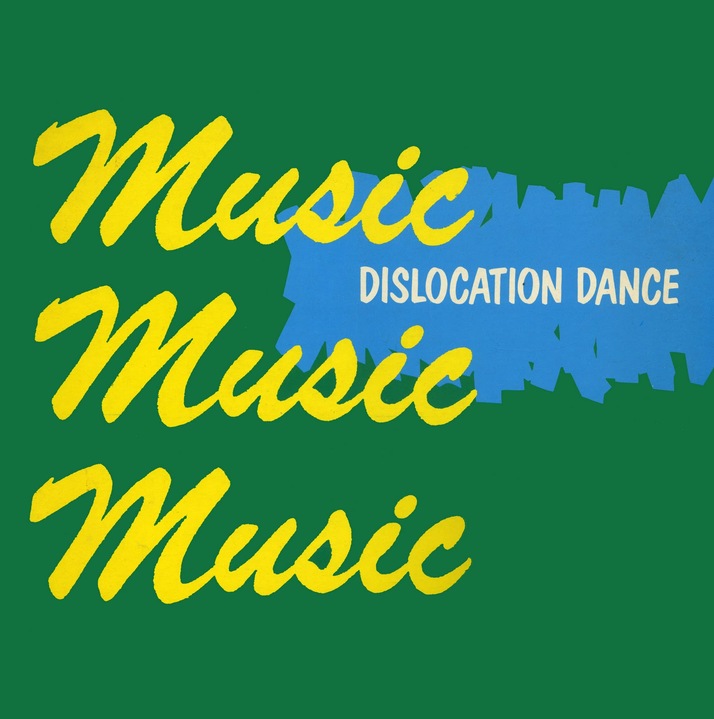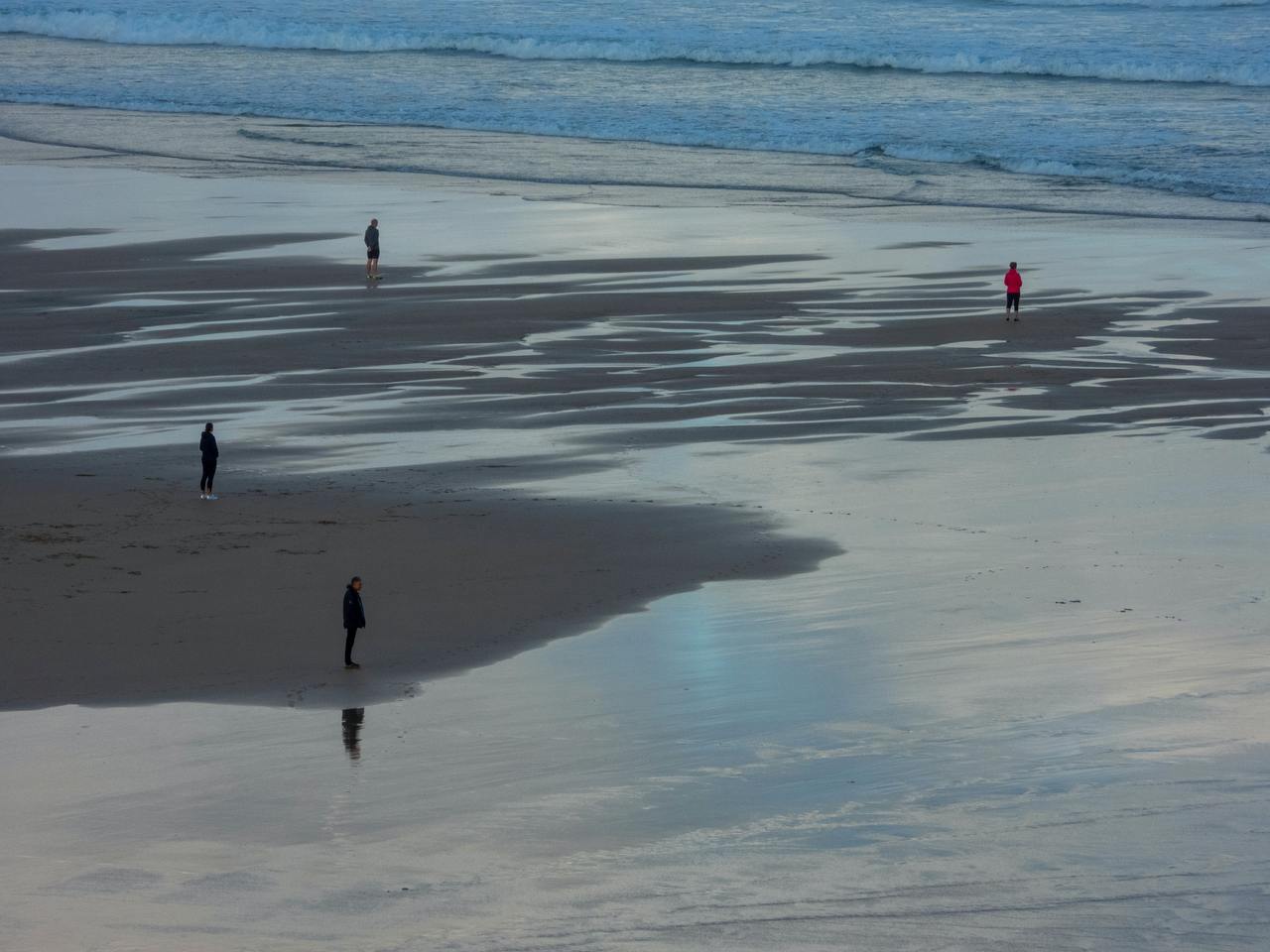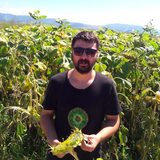
Dislocation Dance - Music Music Music (New Hormones, 1981)
Dislocation Dance - Music Music Music (New Hormones, 1981)
Best of all, I perceive music when I go somewhere - I arm myself with an updated playlist, headphones and just go. Step speed, time of day and surrounding landscapes directly affect my listening experience. The rhythm usually helps me listen to music more carefully and adjust my sensitivity much more accurately. Early in the morning, rushing to work, I always want to listen to something rhythmic, in the evening - something inventive and experimental. On weekends, in a more relaxed mode, you can try to listen to what in other cases has stumbled on your biases and the snobbery developed over the years. Sometimes I get lucky - and some street events seem to be synchronised with the drama of the track I'm currently listening to.
However, now that we are all forced to sit at home, my listening ability has fallen markedly. Where I live, shops are at arm's length, and you can only dream of the existence of a shopping center, the road to which takes listening to an entire music album. Therefore, you have to desperately nostalgia and play the best land walk album with the catchy name “Music Music Music” from the Manchester's new wave band Dislocation Dance.
The group was formed in the early ‘80s by the strong creative tandem of trumpet player Andy Diagram and drummer Richard Harrison, which is still active today. The album
Music Music Music is the first and best from the band’s discography. Everything is perfect in it - it appeared in the prime of the new wave, when the musicians did not repeat the chips one after another, but continued to invent new ones. Dislocation Dance differed from many similar groups in its special light summer sound with extra-short catchy and stringy songs - probably because they knew the secrets of levitation. The singing and incredibly melodic sounds of the Andy Diagram’s trumpet perfectly complement the pop-oriented songs of the vocalist Ian Runacres, and sometimes even provoke the band to play the most frivolous swing in the world. If I were on the street, I would definitely start to lope around. The instrumental compositions of Dislocation Dance, on the contrary, are full of drama and kinemotogrophicity - only “Ventetta” can sound all the spaghetti-westerns at once. As paradoxical as it sounds, there is so much music in
Music Music Music - and by its end (it lasts only half an hour), you feel a wonderful state of fullness and satisfaction. And if at that moment the bright sun shines, then, squinting and smiling, you could start to levitate.
Picked by Eugenie Galochki (ТОПОТ)
Dissmentado - The Best of Dissmentado (Huntleys + Palmers, 2018)
I chose this album because I have known, liked, played and listened to these tracks for more than a decade, and they are still fresh to me. The tracks are also made by two musicians I admire a lot and I was there when they started working on this project back in 2007/2008. My first introduction to learning Ableton was watching Ismael and Maximo work together on some of these tracks.
Picked by Charlotte Bendiks
Edgar Froese - Epsilon in Malaysian Pale (Virgin, 1975)
The album by Edgar Froese – the leader of Tangerine Dream, is composed of only two tracks filling up the whole record. It was recorded in Froese’s studio after the band’s tour in Australia in 1975. It is a sonic dream of traveling into remote places. An album is a result of the fascination of the artist in a new and immersive sound of futuristic synthesizers and sequencers but from a deeper perspective, it is homage to nature and the beauty of secret life that earth sometimes allows us to witness. It is a piece of perfect music for the time we are living now. Froese tells us that there is a promise of calmness that comes after the storm.
Picked by Kornelia Binicewicz (Ladies On Records)
Feederz - Ever Feel Like Killing Your Boss? (Flaming Banker, 1984)
I don't need to hear what humans think, I don't like what they do, and political thought and action is the worst. This album has some energy so yeah, ok!
Picked by Victor Stutz
Fun Boy Three - The Fun Boy Three (Chrysalis, 1982)
The English new wave band from 1981 found a few words back then which fit in the actual times very well. Just enjoy the ride along the nice groovy synth bassline and mellow guitar riffs which carriers you through the track. Sing along, have faith in humanity and take care to the people next to you. Hope dies last.
Picked by Alexander Arpeggio
Harold Budd - The Pavilion of Dreams (1976)
When asked to think about an album that has been helping me weather these difficult and unsettling times, the thing that immediately springs to mind is The Pavilion of Dreams, Harold Budd's first album, which has certainly been getting a lot of play over recent weeks, particularly in the small hours when sleep has been avoiding me. Released in 1978, the work was produced by Brian Eno and released on his short-lived
Obscure label.
The album features a who's who of important experimental composers and players, including Marion Brown on Saxophone, Gavin Bryars on celeste and glockenspiel, Michael Nyman on marimbas and some vocals from Brian Eno.
The Pavilion of Dreams is such an apt title for this work, which seems to construct a warm, and dense architecture around the listener, to house us in a massive, welcoming structure built out of the lush sounds of harps, marimbas and glockenspiels, and the ethereal wordless vocals of what appears to be a choir of angels.
Despite its warmth and lush tones, this music appears to be devoid of any emotion, rendering it as something beyond human, something more natural. It shimmers like the reflection of the sun on waves, it ebbs and flows in a way that helps me to remember the world is bigger than my anxieties, and that helps to ground me. This music has provided solace and shelter through difficult times over a number of years but it’s taking on additional meaning for me now through this pandemic, providing me with a safe space and a retreat. I hope you'll consider giving it a listen and that it provides you with something you need too.
Picked by Marc Teare (Hive Mind Records)




